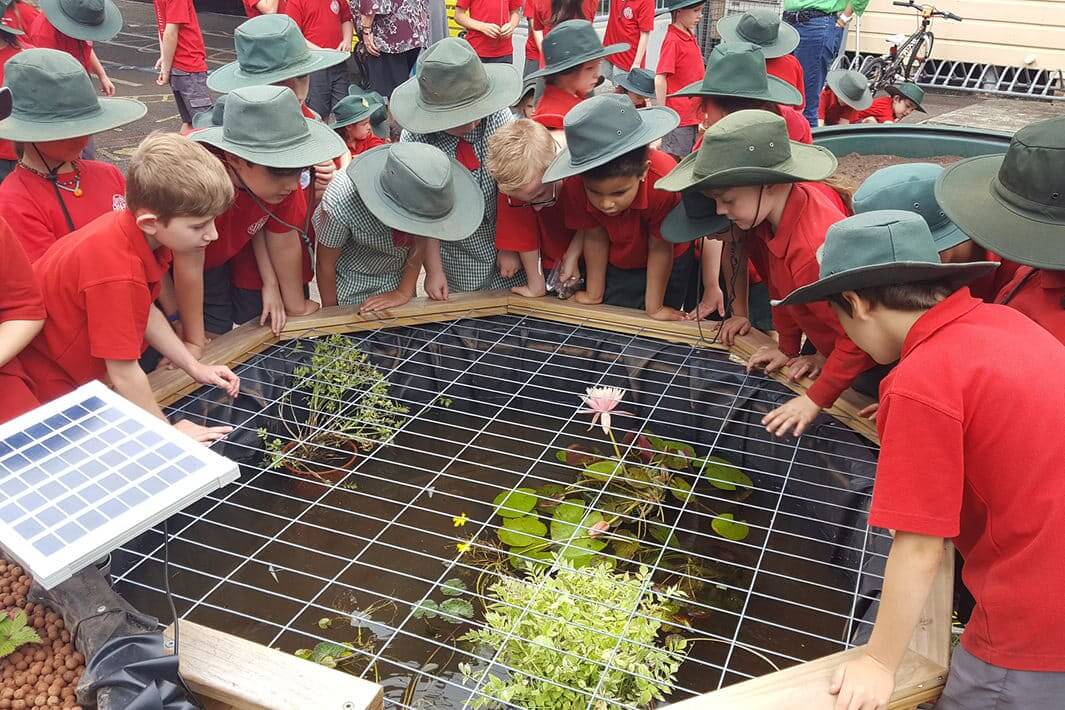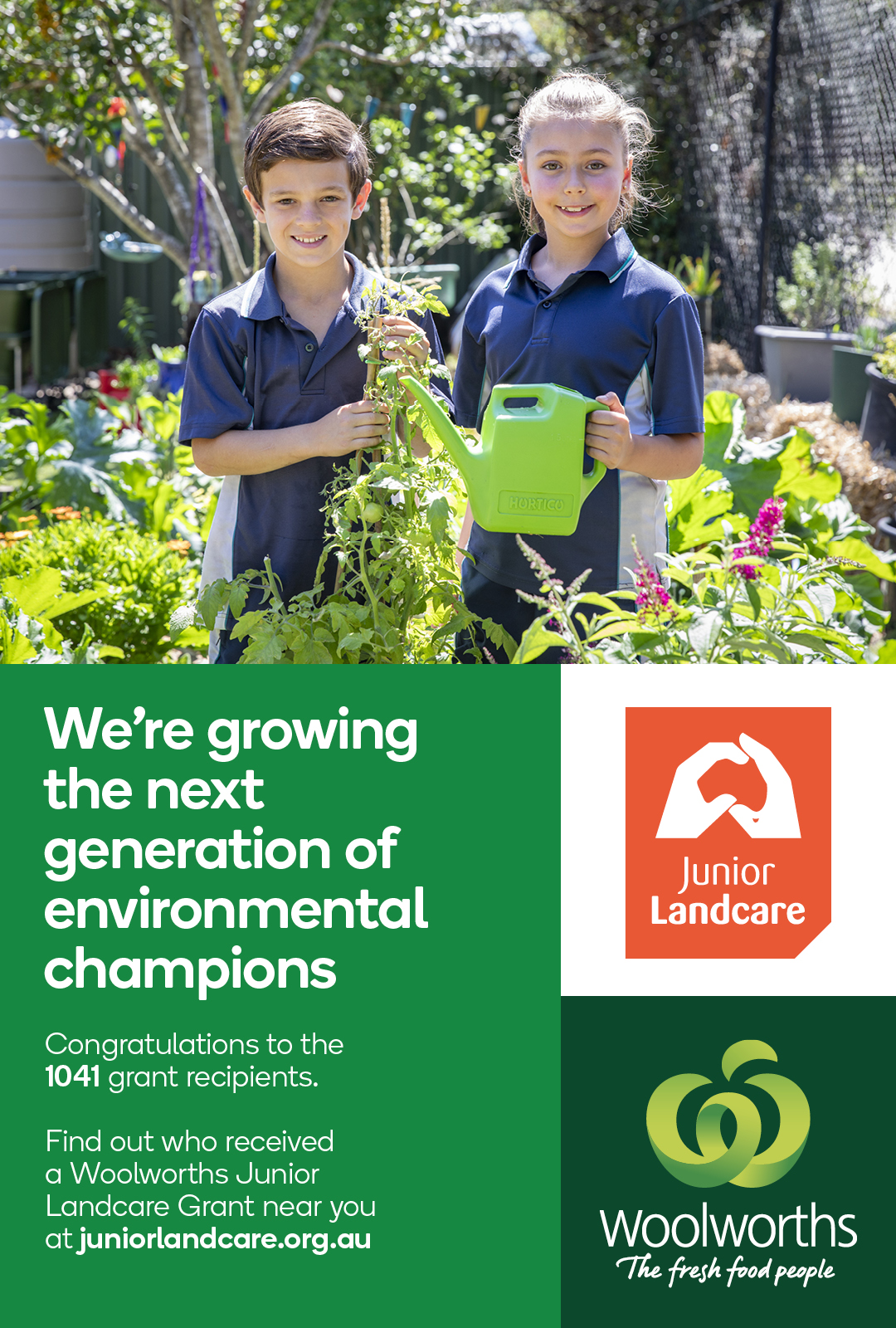CASE STUDY

Age Groups: 7-13
Grant Name:
School: Nillo Infants School
Grant Sponsor:
During summer, temperatures of 35-40 degree are not uncommon in Lorn, NSW. On these sweltering days many plants in the area die if they are not watered within 48 hours.
This was an ongoing problem for Nillo Infants School in the Hunter Valley. The extreme summer temperatures would affect the plants in the school garden, causing them to dehydrate and die, especially on weekends or during school holidays when regular watering was unavailable.
Not content with seeing their beautiful garden being destroyed, the school set about solving their watering issues by creating an aquaponics sensory garden, using a Junior Landcare grant from the Australian Rail Track Corporation (ARTC).
Combining aquaculture (raising fish) and hydroponics (the growing of plants without soil) the garden utilises an integrated system where fish and plants are grown. The fish waste provides an organic food source for the plants and the plants naturally filter the water for the fish.
To build their garden, the school used two existing round plastic garden beds. The soil was removed and waterproof liners installed. One of the tubs (the fishtank) now holds water, fish and water plants, which pumps water to the other tub (the grow bed) holding clay balls and plants such as vegetables, herbs and flowers.
The fishtank includes a lockable cage cover for safety. The students added sensory items to the aquaponics garden including wind chimes (hearing), scented herbs and flowers (smell), fruits such as strawberries (taste), various plants with differing surfaces such as borage (touch) and an interesting variety of colours, shapes, items, plants and flowers (sight).
Easy to install and maintain, the garden has delivered many positive environmental outcomes for the school while also teaching the students about sustainability and self-sufficiency. Although requiring significant effort and expense to set up, the sustainability and water-wise benefits the garden offers have far outweighed the costs.
The environmental outcomes of the aquaponics sensory garden include: providing a water source for animals and insects, providing fish to control the mosquitos around the water source and saving water by recycling water from the pond to the garden bed and back again. Plus, the school has also eliminated the need for fertilisers as the fish naturally fertilise.
Now, the plants, flowers and herbs are well hydrated at all times and are no longer affected by the extreme heat.
According to Nillo Infants School staff, the project has provided a whole new interactive learning experience for its students and the parent community.
“To branch outside what is familiar and try something new and see amazing results and benefits has been a wonderful learning experience for everyone involved,” they said.
Nillo Infants School was one of 29 schools in New South Wales to receive a Junior Landcare grant from Australian Rail Track Corporation (ARTC) in 2018. The grants were given to schools to fund a broad range of projects including veggie gardens, permaculture gardens, native gardens, worm farms, recycling projects and sensory gardens. Read more about some of the schools who received these grants.
 Teachers & Educators
Teachers & Educators Youth or Community Groups
Youth or Community Groups